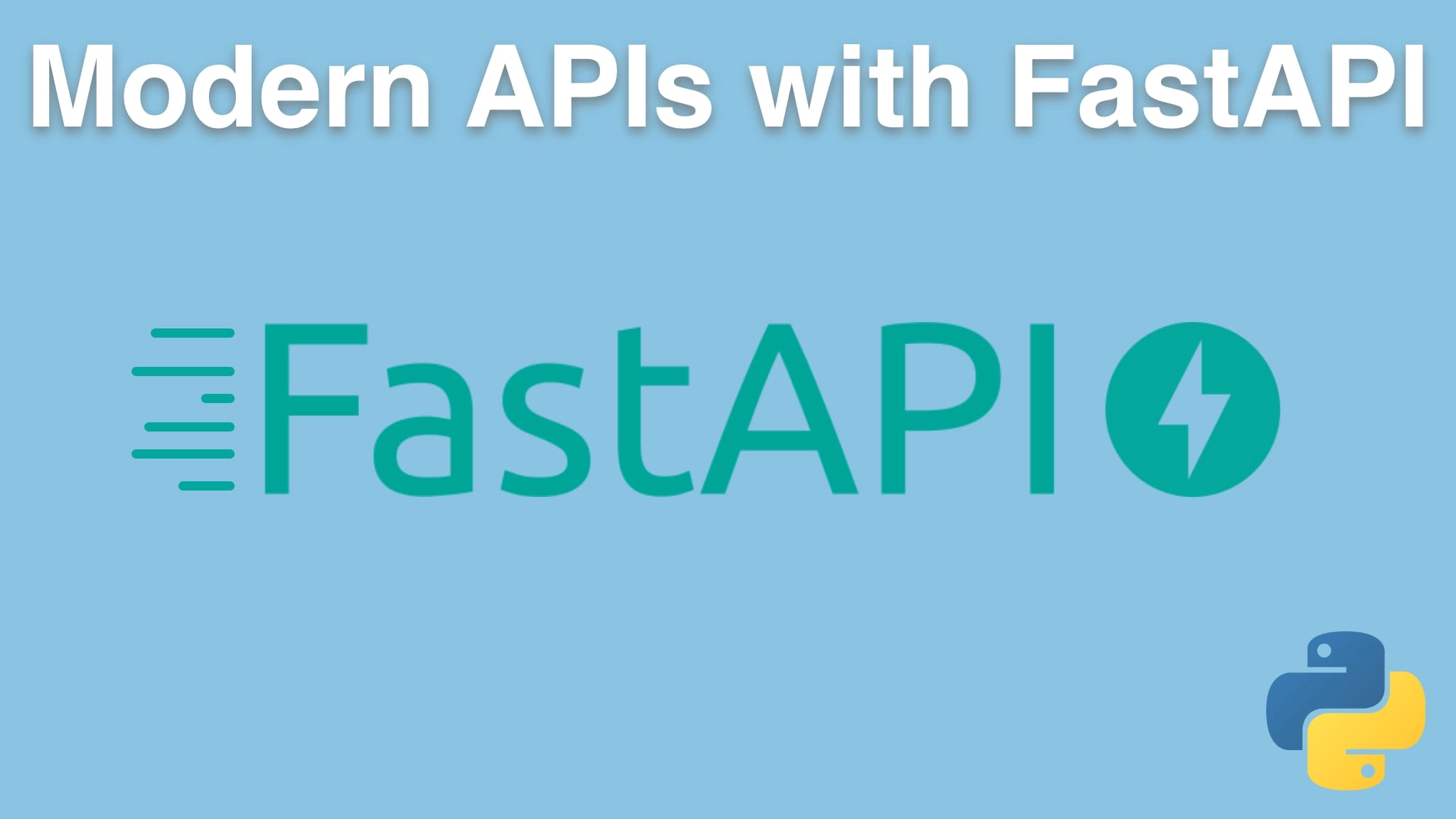Modern APIs with FastAPI and Python Transcripts
Chapter: Welcome to the course
Lecture: Why FastAPI?
Login or
purchase this course
to watch this video and the rest of the course contents.
0:00
Why is there so much excitement around FastAPI? Well, let's go through just some of the things that make it special. FastAPI
0:07
is one of the fastest Python web frameworks available. In fact, it's on par with the performance of things like Node.js and Go,
0:14
and that's largely because it actually runs on top of something called Starlette,
0:19
a lower level web framework, and uses Pydantic for data exchange and data validation. So, when you think FastAPI,
0:26
you can think fast to execute, fast to run. But that's not the only fast that matters,
0:31
is it? One of the most important ways to be fast is to create applications fast and not spend a lot of time building them.
0:37
So it's also fast to code because FastAPI does many of the mundane type of things that you would do in a web
0:44
application, automatically for us, and some estimates have put it the speed of using FastAPI over things like Flask and Django at 2 to 3 times faster.
0:55
That's because we can do things like just a API method and say it takes some kind of class, one of these Pydantic models,
1:01
and it will automatically look and make sure all the stuff that that class says it
1:05
must have is there, the types the class says it must take are either there or
1:10
automatically convertible to there, so you have a class that's a location, it has a city and a state, well, it better have a city and a state,
1:18
and those are gonna be strings that can be converted over and so on. So a lot of the work around like validation, data exchange, documentation,
1:26
all of that is largely automatic, so you're not gonna have to spend time writing that code. Also,
1:32
when you don't write code and stuff happens automatically for you, that means you might not be writing bugs.
1:37
So there's also about 40% less chance of an error because you don't have to write as much validation and data exchange.
1:44
Also, because of the type hints, it deeply embraces this idea of teaching the editors what type of data is being exchanged.
1:51
You're passing rich objects to the API methods, all the various parts of the API itself, the framework itself, have
1:58
type hints, so editors know what to do and give you automatic completion everywhere, less time in the documentation, less time debugging.
2:06
It's also designed to be easy to use and learn. If you know Flask, you will be pretty close to knowing FastAPI
2:11
actually, and there's not a whole lot of code you have to write. So not too much to write, as well as not too much to learn, less time reading docs,
2:20
also, because of the great editor support. When we create our API's, we'll put parameters in there saying "it takes this kind of data, returns that
2:26
kind of data, and it has this type". Because of all the automatic stuff that's happening
2:30
for us, you'll see the framework is actually doing multiple things, like ensuring the variable is there, doing automatic type conversion, and so on.
2:37
So again, less code duplication, fewer bugs. And, it comes with a production ready web server built on Async and await, so
2:45
you get the highest performance production grade servers, you can just drop right into production.
2:51
One of the challenges with building HTTP based API's is there's zero documentation. What's supposed to be exchanged? Who knows?
2:58
Just go out there and read the docs and play with it. But with FastAPI, it automatically uses what was known as "swagger",
3:04
OpenAPI, to generate documentation for all the API methods, what data is exchanged through JSON schema, and things like that.
3:13
So it's really, really nice that we get automatic documentation by simply writing our program.
3:17
Nothing else. So, these are just some of the reasons to be excited about FastAPI, and we're gonna explore all of them throughout this course.
